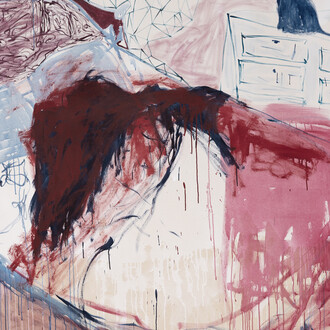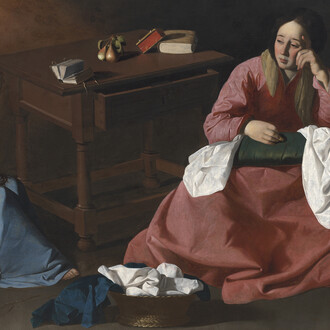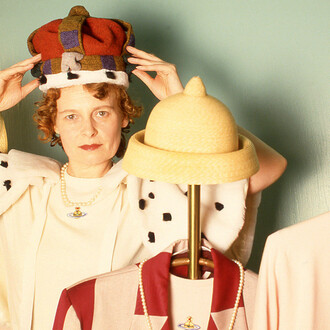October Gallery presents Transvangarde: Free Style Cipher, an exhibition of new works by Sokari Douglas Camp CBE, Alexis Peskine, and Govinda Sah ‘Azad’, with selected works by Susanne Kessler, Tian Wei, Golnaz Fathi, Jukhee Kwon, Elisabeth Lalouschek, and Romuald Hazoumè, amongst others. The exhibited works will focus on the visual language particular to each artist, helping to decode the various layers of meaning and shed light on each artist’s practice in conversation with and concerning their peers.
Highlights will include new steel sculptures by Sokari Douglas Camp that continue in the vein of her recent Jonkonnu Masquerade series. These poignant yet playful works focus on the significance of feathers, examining the material’s links to colonial wealth and power, as they combine imaginative elements of carnival masquerades and festival processions. The masked revellers’ striking headdresses and ostentatious fans are seen through the lens of the thrilling Kalabari masquerades of the Nigerian coastal region where Sokari was raised.
New ‘nail portraits’ by Alexis Peskine, will also be shown. These powerful works made by hammering nails of different sizes into wooden boards focus on the Black experience and questions of identity as they map the spread of the African diaspora. Beyond the silver and gold-leaf appliqué on the nails’ heads, Peskine continues to experiment with new colours and materials, using Japanese blue and purple oxidised silver leaf upon boards stained with natural pigments: indigo, curcuma, and hibiscus.
Govinda Sah’s work comprises interwoven layers of acrylic traces and marks that build into what Sah describes as a long unfolding conversation between the canvas and myself. The emergent painting itself ‘proposes’ unexpected areas for consideration, and the process continues until a successful conclusion is reached.
Susanne Kessler’s works on paper, collages, paintings, sculptures, and installations investigate line- in all its manifestations. At stake is not the spatial implications of these many lines alone, but their transformative ability to tie together her vast body of work.
Iranian artist Golnaz Fathi’s bold gestural works present many layers of mysterious meanings. While exact communication depends upon the legibility of any text, the sheer accumulation of overwritten lines purposely obliterates all possibility of direct interpretation.
Tian Wei’s striking monochrome works construct a bridge between East and West. While the artist’s cursive shapes initially look like Chinese characters, on closer examination, the ciphered text can only be ‘read’ in English. Also presented is a rediscovered dynamic painting, from 1990, by Elisabeth Lalouschek.
Finally, more sculptural works are presented by Jukhee Kwon, whose ‘found’ books, are painstakingly manipulated and transformed by cutting and slicing; and Romuald Hazoumè’s signature masks, which are impromptu portraits repurposed from found objects that highlight the artist’s keen social commentary and droll sense of humour.
















